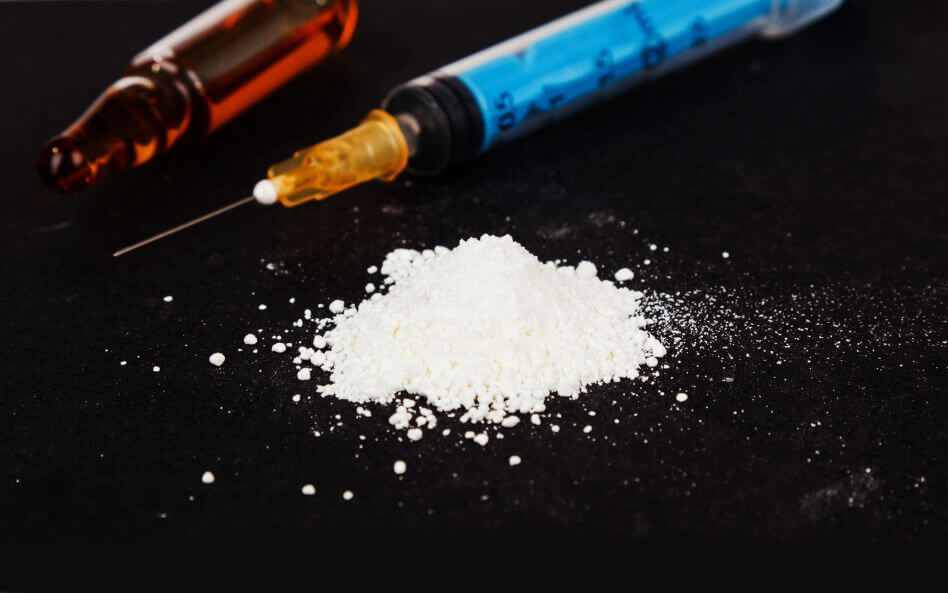Cocaine is one of the most addictive illegal drugs. Known for its quick and intense effects, leading to a temporary burst of high confidence, euphoria, and energy, it is often used at parties and clubs, as well as in high-pressure workplaces. While its effects may seem appealing, there are significant negatives to using cocaine, even during the high itself.
One such effect is increased aggression. People using cocaine often become irritable and hostile towards others. Their energy and confidence turn into problems as this aggression leads to confrontations and even violent behaviors.
But why does cocaine make you aggressive? In this article, we’ll go into how cocaine affects the brain and impacts the user’s psychology, often fueling negative social interactions.

How Cocaine Impacts the Brain
Cocaine impacts the brain’s functioning by influencing certain chemicals that affect our moods and reactions. It primarily boosts dopamine, otherwise known as the ‘reward’ hormone, creating intense pleasure and excitement. This is one reason why cocaine is one of the most addictive substances – your brain rewards you for the action and so, when the effect subsides, you do it again and again. But, while dopamine initially brings a feeling of joy, the overstimulation can also lead to agitation.
At the same time, cocaine increases another chemical called norepinephrine, which triggers your body’s “fight or flight” response. This chemical boost increases heart rate and alertness, often causing restlessness and irritability. It’s this combination of overstimulation and stress response that makes users feel edgy, impatient, and quick to anger.
Another neurotransmitter affected by cocaine is serotonin which is also crucial for managing mood. It disrupts the production and dispensation of serotonin and, with levels out of balance, users can feel extremely irritable. Serotonin regulates impulse control as well, and without the proper levels, cocaine users have trouble controlling their temper.
The brain’s areas responsible for managing emotions, particularly the amygdala, which handles feelings of aggression, and the prefrontal cortex, crucial for controlling impulses and making decisions, also become affected. Cocaine weakens these areas, making users prone to impulsive and violent outbursts.
Psychological Factors Contributing to Aggression
Cocaine-induced aggression isn’t just about brain chemistry; psychological factors are equally influential. When someone uses cocaine, they may start to feel overly suspicious or anxious, often perceiving harmless situations as threatening. This heightened sense of paranoia can quickly escalate into defensive reactions or aggressive behaviors, as the person tries to protect themselves from perceived threats, real or imagined.
One of the reasons people use cocaine is because it tends to significantly inflate their sense of confidence. This can feel good but, without regulation, overconfidence can lead to terrible decision-making. It pushes some people into reckless or confrontational behaviors as they believe they can handle any situation. They feel invincible, causing them to disregard risks and ignore the consequences of their actions.
This exaggerated self-confidence, combined with irritability and impatience, makes them more likely to engage in conflicts, thinking their aggressive behavior is justified or even necessary. Only when the high wears off do they recognize the long-term consequences caused by their aggression.
Contextual and Environmental Factors
The context in which someone uses cocaine can greatly influence how aggressive they become. Social settings, such as parties, clubs, or environments where peer pressure is high, often create situations ripe for aggressive behaviors. In these settings, people might feel more competitive, defensive, or emotionally charged, which cocaine can intensify significantly. Additionally, environments that already have tension, stress, or aggression, such as certain workplaces or social groups, further amplify these effects.
Combining cocaine with alcohol or other substances makes the situation even more volatile. Alcohol and cocaine together produce unpredictable emotional reactions, often causing dramatic mood swings and poor judgment. This combination can greatly reduce a person’s self-control, making them more impulsive, reactive, and likely to engage in confrontations or violent behavior.
Is the Aggression Caused by Cocaine Permanent?
Some people may decide that the risk of becoming aggressive is worth taking, believing that they can control themselves and that it will wear off anyway. But this isn’t necessarily true. The effects of cocaine can be more insidious in the long term, especially when a person frequently uses it.
Regular users of cocaine can, in fact, become more aggressive even when they are not high. This is because, over time, consistent cocaine use can lead to significant changes in the brain, altering both its structure and function. These changes may cause the aggression to become ingrained, continuing to affect the user even after they stop actively using the drug. Long-term cocaine users frequently find themselves battling ongoing irritability, heightened anger, and impulsive outbursts, as their brains struggle to repair the damage caused by prolonged exposure.
Treating Aggression Caused by Cocaine
So, what can a person do if they’ve been using cocaine persistently, leading to increased aggression? The good news is that treatment can help reverse the impacts of cocaine, including aggression and other undesirable characteristics.
Once the individual detoxes from cocaine, they can begin with therapy to change behaviors and beliefs that have become ingrained. Cognitive-behavioral therapy (CBT) is the most common treatment approach used and is highly effective in treating addiction. In CBT, the therapist helps the person recognize their triggers for aggression and develop healthier coping mechanisms and emotional regulation skills.
If necessary, a recovering cocaine addict can also take anger management programs specifically designed to address impulsive behaviors.
Conclusion
Cocaine can cause significant aggression while the person is high. This is due to a combination of factors, including its influence on the brain and the person’s psychology. Unfortunately, for people addicted to cocaine, this aggression can become ingrained, even when they are not high.
Treatment for cocaine addiction can help reverse the negative effects of cocaine. If you or a loved one are struggling with cocaine addiction and associated aggression, get in touch with a treatment professional today.




